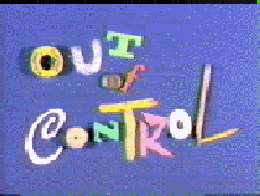Secular Theology
Posted on August 12, 2011
 Nihilism rules the streets of Great Britain. A normal looking Norwegian kills scores of fellow countrymen in the hopes of sparking a war against Islam. Paris is still recovering from the Algerian riots of last year.
Nihilism rules the streets of Great Britain. A normal looking Norwegian kills scores of fellow countrymen in the hopes of sparking a war against Islam. Paris is still recovering from the Algerian riots of last year.America loses it AAA rating. Europe struggles to stay fiscally afloat. Portugal, Ireland, Spain, Italy, Iceland all look like they are going to go bankrupt.
European birthrates can’t compete with European death rates, as more immigrants fill the workforce and create tension.
Gangs of black youths run around major American cities, beating up white people for the fun of it. Police forces in rural America spend the majority of their time trying to close down meth labs, as the percentage of people in the country who are addicted to the deadly drug inches up.
Teachers (not students) are accused of cheating when it comes to grading standardized tests, so that they can escape the brunt of the No Child Left Behind law.
Stories of abuse, suicide, rape, incest and a variety of other unbelievable evils dominate the headlines.
What the hell is going on with Western Civilization?
Greece, the birthplace of Western philosophic thought, is collapsing because nobody pays taxes and nobody wants their benefits cut. Italy apparently is not that far behind.
The Western World was divided into two basic philosophic outlooks. Catholicism, which emphasized good works, faith, concern for the poor and a rigid series of rules that included a chance at redemption through confession dominated the lower half of Europe and much of upper half of the United States. Protestantism, which emphasized that grace is revealed through hard work, helped inspire the legendary Protestant work ethic dominated the upper half of Europe and the lower half of the United States. (This, of course, is a vast generalization).
From the Enlightenment onwards, Catholicism and Protestantism melded together the efficiency of Protestantism with the compassion of Catholicism to help Western civilization to become the most potent force in the world. The marketplace was able to find an equilibrium that helped it temper the excesses of greed (for the most part), and promote both scientific and economic advancement.
The 20th century treated Western philosophic-thought badly. The First World War led to bitter disillusionment among philosophers, artists and thinkers. The Second World War, and especially the Holocaust, caused even more disillusionment, especially in Europe.
America, because it won both the First and Second World Wars, was largely shielded from the philosophical gloom that hit Europe. America’s crisis hit hard during the Vietnam War, and the various social revolutions (civil rights, gender and sex) further weakened the religious consensus that had guided America for generations.
The United States is now in the throes of a giant spiritual re-awakening that has consumed a relatively small, but growing portion of the American population. It has made itself known initially with the Moral Majority of the 1980’s. Evangelicals now make up a big percentage of the Republican voting block. They are trying to assert their views of how political leaders should not only act, but also how they should govern. They are filling the void in response to an American culture that has become more and more materialistic, more shallow, less compassionate, less ethical and more selfish.
I am not a big fan of the evangelical movement, but I appreciate what they are trying to do.
What we need in America (and frankly in the rest of the West) is a secular theology. Not secularism, but a secular theology that accepts the presence of a greater being (the details of which can worked out by each individual religion) as it promotes a better society, where people become less materialistic, less greedy, more compassionate, more responsible, more self-reliant, more charitable, less self-absorbed, and better able to appreciate the gifts of life and fight off the darkness of nihilism.
We need a secular theology that is big enough to encompass the views of all of the major religions, compelling enough to fight the dark forces, flexible enough to allow for scientific and economic progress and strong enough to compel a better society.
